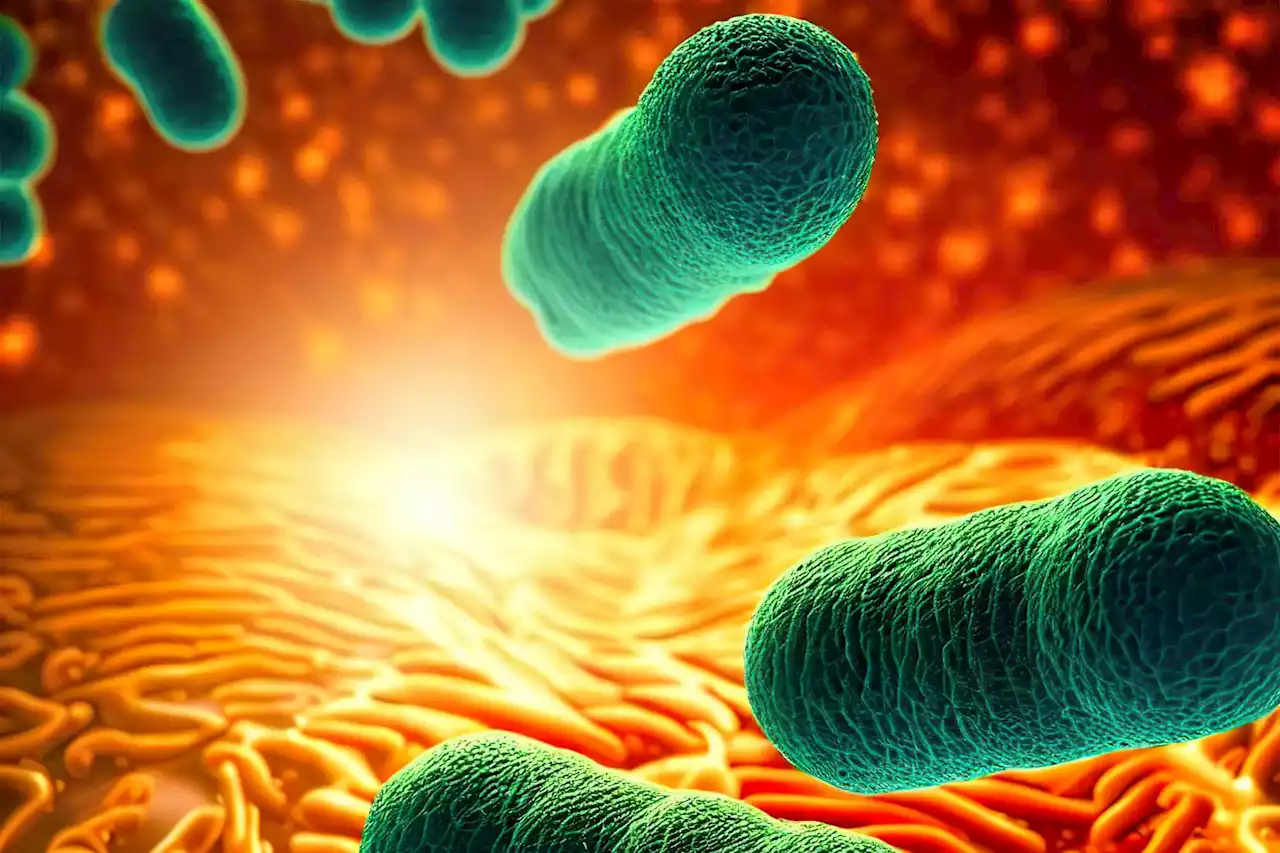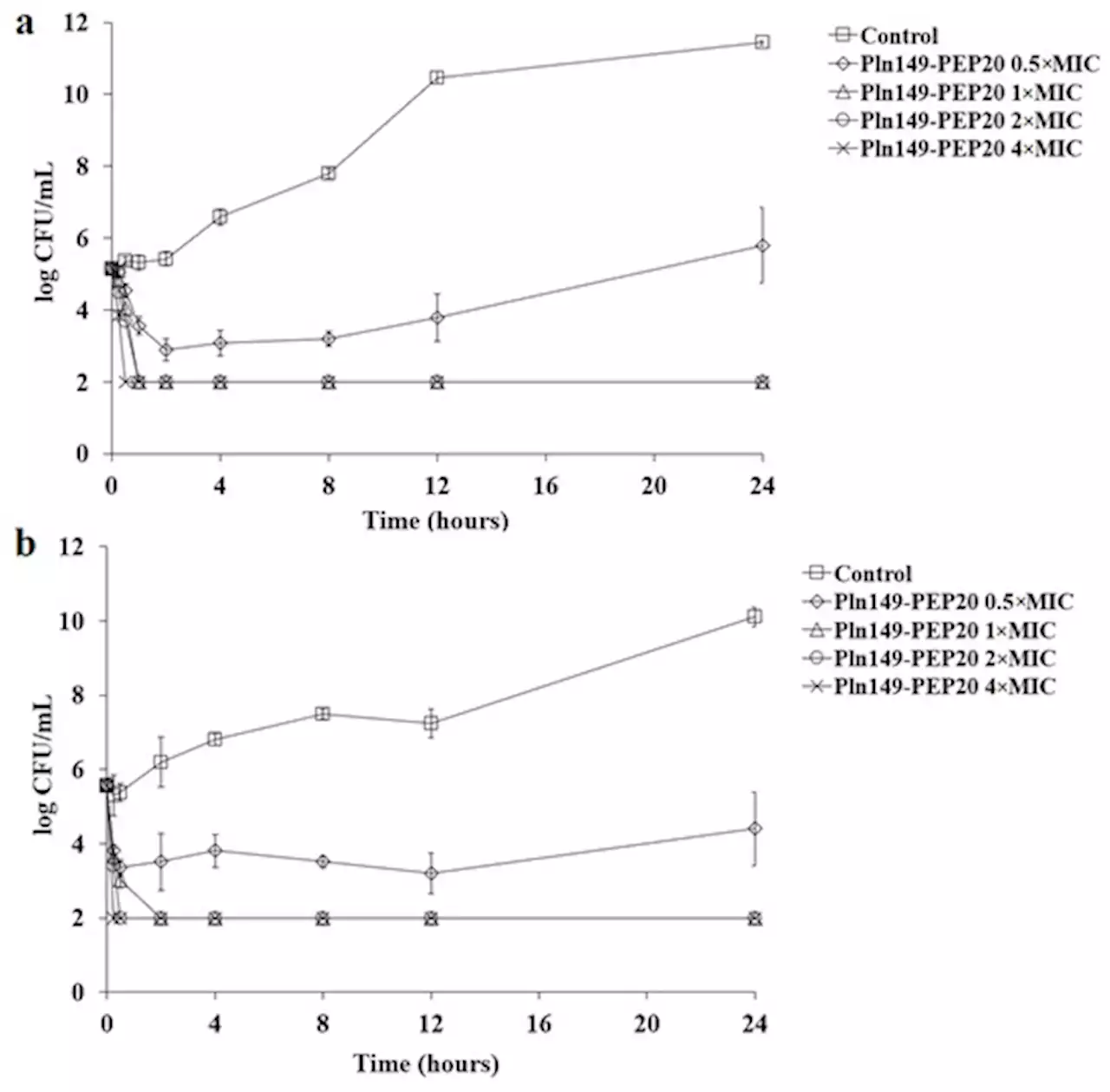Bacteria that cause tooth decay could be blasted away by microscopic “bombs” detonated with an ultrasonic toothbrush.
Vesna Andjic/iStockphoto/Getty Images
Ultrasound can cause some liquids, such as perfluorohexane , to rapidly expand and turn to gas. Some researchers have explored using tiny degradable capsules containing these liquids to deliver drugs inside the body or to blast away cancerous tumours.at Wuhan University in China and his colleagues have developed PFH-containing capsules designed to destroy biofilms – aggregations of microbes …
United States Latest News, United States Headlines
Similar News:You can also read news stories similar to this one that we have collected from other news sources.
 Marine Bacteria Turn Up the Heat on Asbestos DetoxificationResearchers have found that certain extremophilic bacteria can reduce asbestos toxicity by removing iron, silicon, and magnesium from asbestos minerals. Further analysis is required to optimize treatment methods for detoxification and potential reuse. Asbestos materials were once widely used in h
Marine Bacteria Turn Up the Heat on Asbestos DetoxificationResearchers have found that certain extremophilic bacteria can reduce asbestos toxicity by removing iron, silicon, and magnesium from asbestos minerals. Further analysis is required to optimize treatment methods for detoxification and potential reuse. Asbestos materials were once widely used in h
Read more »
 Gerber baby formula with potential bacteria was shipped to stores after recall: fedsCertain lots of Perrigo’s Gerber Good Start SoothePro powdered infant formula had been recalled in March out of an abundance of caution due to the potential presence of cronobacter sakazakii.
Gerber baby formula with potential bacteria was shipped to stores after recall: fedsCertain lots of Perrigo’s Gerber Good Start SoothePro powdered infant formula had been recalled in March out of an abundance of caution due to the potential presence of cronobacter sakazakii.
Read more »
 Antimicrobial Activity of an Fmoc-Plantaricin 149 Derivative Peptide against Multidrug-Resistant BacteriaAntimicrobial resistance poses a major threat to public health. Given the paucity of novel antimicrobials to treat resistant infections, the emergence of multidrug-resistant bacteria renewed interest in antimicrobial peptides as potential therapeutics. This study designed a new analog of the antimicrobial peptide Plantaricin 149 (Pln149-PEP20) based on previous Fmoc-peptides. The minimal inhibitory concentrations of Pln149-PEP20 were determined for 60 bacteria of different species and resistance profiles, ranging from 1 mg/L to 128 mg/L for Gram-positive bacteria and 16 to 512 mg/L for Gram-negative. Furthermore, Pln149-PEP20 demonstrated excellent bactericidal activity within one hour. To determine the propensity to develop resistance to Pln149-PEP20, a directed-evolution in vitro experiment was performed. Whole-genome sequencing of selected mutants with increased MICs and wild-type isolates revealed that most mutations were concentrated in genes associated with membrane metabolism, indicating the most likely target of Pln149-PEP20. Synchrotron radiation circular dichroism showed how this molecule disturbs the membranes, suggesting a carpet mode of interaction. Membrane depolarization and transmission electron microscopy assays supported these two hypotheses, although a secondary intracellular mechanism of action is possible. The molecule studied in this research has the potential to be used as a novel antimicrobial therapy, although further modifications and optimization remain possible.
Antimicrobial Activity of an Fmoc-Plantaricin 149 Derivative Peptide against Multidrug-Resistant BacteriaAntimicrobial resistance poses a major threat to public health. Given the paucity of novel antimicrobials to treat resistant infections, the emergence of multidrug-resistant bacteria renewed interest in antimicrobial peptides as potential therapeutics. This study designed a new analog of the antimicrobial peptide Plantaricin 149 (Pln149-PEP20) based on previous Fmoc-peptides. The minimal inhibitory concentrations of Pln149-PEP20 were determined for 60 bacteria of different species and resistance profiles, ranging from 1 mg/L to 128 mg/L for Gram-positive bacteria and 16 to 512 mg/L for Gram-negative. Furthermore, Pln149-PEP20 demonstrated excellent bactericidal activity within one hour. To determine the propensity to develop resistance to Pln149-PEP20, a directed-evolution in vitro experiment was performed. Whole-genome sequencing of selected mutants with increased MICs and wild-type isolates revealed that most mutations were concentrated in genes associated with membrane metabolism, indicating the most likely target of Pln149-PEP20. Synchrotron radiation circular dichroism showed how this molecule disturbs the membranes, suggesting a carpet mode of interaction. Membrane depolarization and transmission electron microscopy assays supported these two hypotheses, although a secondary intracellular mechanism of action is possible. The molecule studied in this research has the potential to be used as a novel antimicrobial therapy, although further modifications and optimization remain possible.
Read more »
 Toxic PFAS can be broken down by bacteria found in wastewaterCertain kinds of 'forever chemicals' can be dismantled using bacteria found in wastewater. This points to a possible way of making more of these compounds biodegradable
Toxic PFAS can be broken down by bacteria found in wastewaterCertain kinds of 'forever chemicals' can be dismantled using bacteria found in wastewater. This points to a possible way of making more of these compounds biodegradable
Read more »
 Scientists Have Created Cancer-Fighting E. Coli BacteriaGenetically engineered E. coli strains killed a variety of different cancer types in mice.
Scientists Have Created Cancer-Fighting E. Coli BacteriaGenetically engineered E. coli strains killed a variety of different cancer types in mice.
Read more »
 Ben Affleck's New Movie Bombs in Theaters, J Lo's Soars on NetflixBen and Jen both had movies release this weekend, and they took very different routes in terms of medium and money.
Ben Affleck's New Movie Bombs in Theaters, J Lo's Soars on NetflixBen and Jen both had movies release this weekend, and they took very different routes in terms of medium and money.
Read more »
